Image courtesy of the Recording Academy
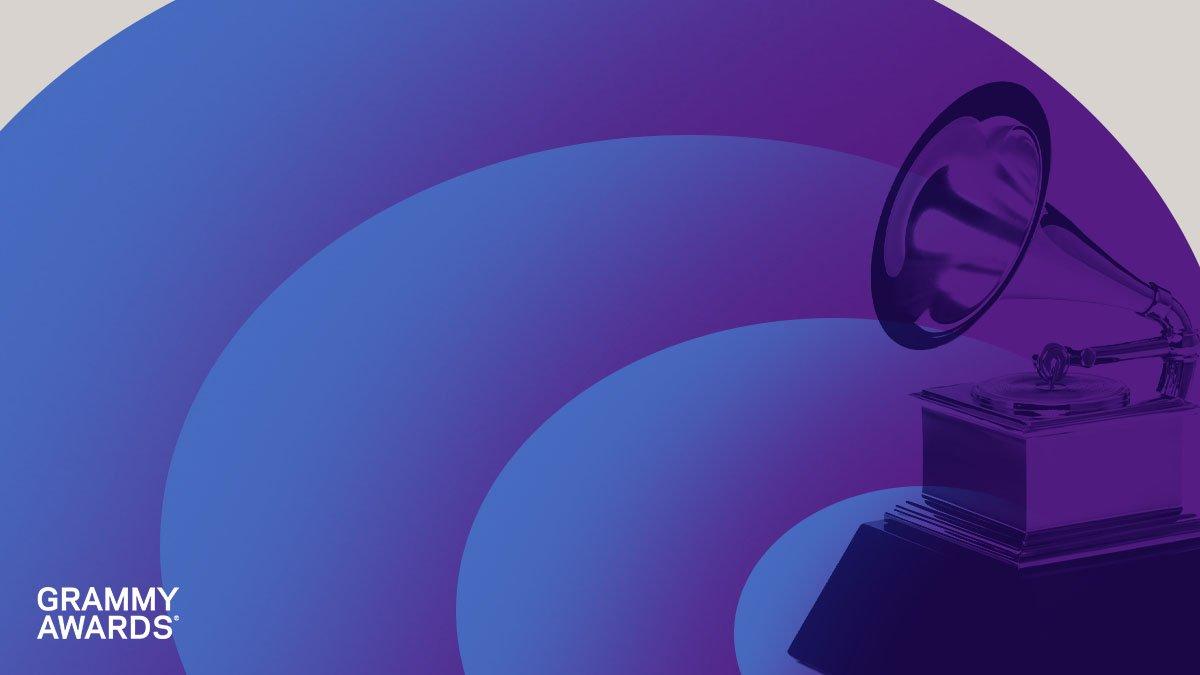
interview
2024 GRAMMYs: How The New Best African Music Performance GRAMMY Category Is A Massive Win For The World
At the 2024 GRAMMYs, African music will be elevated via the newly announced Best African Music Performance GRAMMY category. GRAMMY.com sat down with industry leaders from the African music community to discuss the impact of this major development.
Harvey Mason jr. didn't just visit Africa — he was transformed by it.
In 2022, the Recording Academy CEO visited a number of African countries, where he met with leaders in the local music communities and intently listened to what each had to say.
"Mind-bending. Game-changing. Eye-opening," Mason jr. said of his trips to Africa. "There's so much music, so much creativity over there. Africa is the birthplace of, well, everything, but definitely music."
Accordingly, the universe of sounds coming out of the African continent can't be boiled down to just those having an international impact today, like Afrobeats or Amapiano. No, every corner of Africa is a fount of brilliant musical offerings. So it's incumbent on the Recording Academy, the world's leading community of music professionals, to reflect the momentum happening across Africa.
With this as the engine, the Recording Academy has revealed a thrilling new GRAMMY category in time for the 2024 GRAMMYs: Best African Music Performance.
Announced in tandem with two other exciting, new GRAMMY categories, including Best Alternative Jazz Album and Best Pop Dance Recording, the category elevates all flavors of African music — from Afrobeats to kizomba to Ghanaian drill to South African hip-hop — without regard to borders. Musical excellence from anywhere and everywhere in Africa will be carefully considered in this progressive category.
While this development is a forward-thinking expansion for the Recording Academy, the GRAMMYs, and the international music industry as a whole, the new Best African Music Performance category is the "first step toward a much bigger, more fruitful journey ahead," Mason jr. tells GRAMMY.com. "And we're not done as an Academy: We're making sure that we represent music from that region fairly and accurately."
Read More: 2024 GRAMMYs: 4 Things To Know About The New Categories & Changes
To celebrate the new category, GRAMMY.com sat down with industry leaders — including Mason jr. — to discuss the story behind the brand-new Best African Music Performance GRAMMY category, its impact on the global music industry, and the future of African music.
These interviews were edited and condensed for clarity and brevity.
*Harvey Mason jr. Photo: Emma McIntyre by Getty Images*
Harvey Mason jr.
CEO, The Recording Academy
Harvey, you've spoken extensively about your recent travels to a number of African countries. I've got to imagine those trips informed the new Best African Music Performance category.
Absolutely. I've done three trips to Africa in the last year. I spent a lot of time listening to and hearing from the music community there. There's such a massive amount of talent and creativity in that region, and we're starting to see that penetrating the U.S. market and global market — with Afrobeats and Amapiano and other African genres becoming so popular, driving the sound, and dictating the creativity of artists that are not from that region. You're seeing collaborations and features happening around those genres, which are becoming so popular and are moving the music landscape.
During my time there, I heard from the African music industry, and they all felt like they weren't being represented in our GRAMMY Awards process. It was an eye-opening experience to see the love and respect for the GRAMMYs and the Recording Academy from the continent of Africa. But it was also disheartening to think that they weren't being heard in our process.
That's why I'm really excited about this new GRAMMY category. And I'm really looking forward to seeing what kind of submissions we get and what impact that has on the genres coming from Africa.
It's great to see the Recording Academy's purview spanning the entire African continent — not just popular sounds like Afrobeats or Afro Pop.
It was important for us to make sure we tried to include as many genres as possible, knowing that we were not going to be able to put all the genres being created across the continent.
We can't cover every genre as much as we'd like to and as much as they deserve to be recognized, so this is the first step toward a much bigger, more fruitful journey ahead. And we're not done as an Academy: We're making sure that we represent music from that region fairly and accurately.
Read More: Love Burna Boy & Wizkid? Listen To These 5 African Genres
Can you tell me about the deliberations behind the scenes at the Recording Academy that led to the creation of the Best African Music Performance GRAMMY category?
Deliberations were pretty brief and succinct. Everybody acknowledged the importance of the music coming from that region, and everyone was supportive of the idea. The conversation really centered mostly around the nomenclature — what we were going to call the category — and how we were going to ensure that we represented all the different music that's coming from the region fairly, accurately and inclusively.
Once we realized we couldn't cover everything, we tried to find the sweet spot for making sure that the category was named properly and fairly and in a way that would invite participation from as many people as possible.
Where would you like to see the Recording Academy go from here, as per its embrace of African music from across the continent?
I'd love to see the Academy continue to make sure that we're respecting all music, not just Western music. And I'd like to see us continue to evolve as we have been these past three years: remaining fluid and accommodating, quickly and swiftly, as new genres and new markets emerge.
We need to go deeper and in more detail within different genres of music. We know there are multiple different types of music — hundreds of genres, in fact — coming from Africa and from all 54 countries on the continent. I'd love to see us be able to honor even more music from Africa and other areas of the world.
The future of the Recording Academy is going to build on equity. We're not just honoring music breaking in our country — we're celebrating music from around the world.
Read More: 7 Incredible Sets From AfroNation Miami: WizKid, Uncle Waffles, Black Sherif & More
*Ghazi. Photo: Jessica Chou*
Ghazi
CEO/Founder, EMPIRE
Tell me about the deliberations behind the scenes at the Recording Academy that led to the creation of the Best African Music Performance category.
When we first had Shawn Thwaites, [the Recording Academy's] genre manager for Global Music & African Music, at our EMPIRE headquarters in San Francisco, we discussed the potential for this category to come to life. Not only has African music exploded on a commercial level, which warrants recognition, but on a cultural level, its impact has been immeasurable. Behind the scenes, we focused on sharing information with the Recording Academy that would be valuable to their committee deciding on this category, the consumption and the growth, specifically in North America.
One could spend several lifetimes exploring the diversity of African music. How do you begin to boil all those sounds down to a small list of nominees?
I think we'll see expanded categories in African music in the years to come, but this is a great start toward recognizing the merits and impact of African music. In the meantime, we look forward to working with the Recording Academy in putting together programming to help educate the current membership on the nuances and history of African music.
This new GRAMMY category shows how the Recording Academy is truly a global entity with a global mission to support all music creators and professionals. Where would you like to see the Recording Academy go from here in its global mission to support the international music community?
This is an exciting time in music. Fans are able to access any genre of music from any region of the world at any time. With that, it's inevitable that we'll see large-scale growth in international music in the coming years. It'll be imperative for the Recording Academy to establish a footprint, large or small, on every continent to work side by side with growing music communities around the world and support these artists and creators.
*Tunde Ajaba-Ogundipe. Photo: Harvard Business School*
Tunde Ajaba-Ogundipe
GM, African strategy at Sony Music
Co-founder, No Wahala
Tell me about the deliberations behind the scenes at the Recording Academy that led to the creation of the Best African Music Performance category.
With the Latin community as a reference, we knew that if we could assemble a group of like-minded folks to push the inclusion of diverse African music categories using a long-game strategy, we would be able to try, learn from the misses, optimize, and try again until we found ourselves reaching our goal. We successfully saw that change greenlighted, with the [Best World Music Album] category officially being renamed to [Best Global Music Album] [in 2020].
Throughout the process of appealing to the Recording Academy to have this category added, a key factor was finding like-minded individuals within the organization to form cultural bonds, exchange knowledge, and champion the goal as a unit. We formed think tanks with key allies across the African, American and U.K. music industries, like Angelique Kidjo, Don Jazzy, John Legend, Juls, Riggs Morales, Sevi Spanoudi, Joy Wayodi, and Falu.
After the inclusion of the [Best Global Music Album] category in 2020, we were able to gauge how to collectively push for more inclusion via African music categories. I am grateful that everyone really rallied together to reach the end goal.
In general, what does the international music industry need to do to elevate and honor the African music community and industry?
I always remain an optimist [regarding] African music continuing to influence the global pop scene. With recent waves of music dominance from the current generation of African stars, like Burna Boy, CKay, Oxlade, Black Coffee, etc., I've witnessed many in the industry [mistakenly believe] that similar waves of global recognition of African Music haven't occurred in the past across genres.
I think it means more because of the way music is consumed today and how the African music business — and the business overall — has evolved. It's a lot more challenging to break acts with the attention spans of listeners being more finite now than ever before. Yet, African labels are finding their way into the current landscape.
That said, we should recognize the African icons of the past generations, like Babatunde Olatunji, Sade Adu, Ali Farka Touré, Angélique Kidjo, Ladysmith Black Mambazo, Seal, Sikiru Adepoju, Youssou N'Dour, RedOne, and more, for their wins across GRAMMY categories in the past. It's hard to imagine African music having this moment across the industry without those pioneers opening the doors in an era where it was harder than ever to gain a global audience. They still laid the groundwork, which inspired this generation — directly and indirectly.
[The Recording Academy has] always recognized the opportunities for amplification of African artists, songwriters and producers. I'm a direct witness to their advocacy, championing, and, in some cases, direct education in the past few years to ensure that gaps are bridged between African and diaspora communities and the organization. I'm excited to see the evolution that lies ahead for African music within the Recording Academy and beyond.
*Shawn Thwaites. Photo: Reid Fowler*
**Shawn Thwaites**
Project Manager, Awards, The Recording Academy
Why is it important that the Recording Academy created the Best African Music Performance category?
African music has been a direct influence on America [and other countries]. The unique musical styles and traditions of Africa are too undiluted not to have its own category. Giving African music its own category would highlight and celebrate the diversity and richness of Africa. This is a great step forward!
Can you tell me about the deliberations behind the scenes at the Recording Academy that led to the creation of the Best African Music Performance GRAMMY category?
We met with African music leaders, including artists and executives, and had in-depth conversations on ideas like the name of the category. This collaboration and discussion was a valuable way to ensure that the category for African music was created and remains healthy.
**One could spend several lifetimes exploring the diversity of African music. How do you begin to boil all those sounds down to a small list of nominees?**
The Recording Academy is a peer membership organization. Tracks will be considered by the merit of a song among the voting membership, regardless of its country of origin. This process includes a listening component where screeners are carefully selected to screen the music.
Our product eligibility period for the 2024 GRAMMYs is Oct. 1, 2022, through Sept. 15, 2023. Eligible tracks/singles include vocal and instrumental performances, with strong elements of African cultural significance that blend a stylistic intention, song structure, lyrical content and/or musical representation found in Africa and the African diaspora.
**In general, what does the international music industry need to do to elevate and honor the African music community and industry?**
By celebrating the diversity of African music, we can spread awareness through cultural exchange: more collaborations between artists of different genres and more artist relations between labels and executives in America.
Where would you like to see the Recording Academy go from here in its global mission to support the international music community?
By recognizing the talent and creativity of musicians from diverse backgrounds, the Recording Academy can promote greater understanding and create a more inclusive and diverse global music community.
*Rikki Stein. Photo: Chantal Azari*
Rikki Stein
CEO, Kalakuta Sunrise LTD, a holding company for Knitting Factory Records and Partisan Records
Why is it important that the Recording Academy created the Best African Music Performance category?
Stein: I have long considered Africa as having a tremendous contribution to make in the world, which has yet to be seen and fully appreciated. One day, one day!
Meanwhile, the simplest and most easily accessible aspect of Africa's attributes is its cultural treasure, within which music takes pride of place. In clubs and venues throughout the world today, music from Africa is being enjoyed. Good reason, indeed, for including Best African Music Performance as a GRAMMY category!
One could spend several lifetimes exploring the diversity of African music. How do you begin to boil all those sounds down to a small list of nominees?
Stein: There are certainly a plethora of young [artists] vying for well-earned attention, but let's not forget the previous generation of artists whose music continues to delight fans across the globe.
As Fela Kuti's friend, manager and defender of his legacy, I derive great satisfaction, 25 years after his passing, from seeing the millions of monthly streams of his music. And when I look more deeply into where people are listening to his 50-album catalog, I discover it's everywhere! Khazakstan, Jakarta, Reykjavik, Osaka, as well as the more predictable U.S. and European destinations. So let's not forget the golden oldies!
In general, what does the international music industry need to do to elevate and honor the African music community and industry?
Stein: As a promoter of African music for over 50 years and having spent many of those years banging my head against a glass ceiling, I'm able to give a sigh of relief at seeing serious cracks appearing in that ludicrous structure which — who knows — may well even burst asunder and be no more!
So, let's big up the GRAMMYs and the Recording Academy for making this major contribution to its demise.
*Julian "Juls" Nicco-Annan. Photo: Dbcaptures*
Julian "Juls" Nicco-Annan
Record producer, DJ and songwriter
Why is it important that the Recording Academy created the Best African Music Performance category?
I think it is an amazing addition to the category, given the fact that Africa has a massive impact on music and culture worldwide. It's important for the roots of African culture and sounds to be showcased on a higher stage such as the GRAMMYs to show the world how powerful and influential our sound is. African pop music and culture have been on the steady rise for the last 15 years. It's great to see the GRAMMYs finally take the step to make this happen for us and the continent.
One could spend several lifetimes exploring the diversity of African music. How do you begin to boil all those sounds down to a small list of nominees?
This is where it gets tough. People love to look at West Africa and South Africa predominantly because currently, those sides of the continent are at the forefront.
But East Africa has given birth to some incredible talent. It's important for Africans to push forward to become Recording Academy members, so they can have a voice to push their talent. Experts from different sides of the continent have to advocate. Representation is so important.
In general, what does the international music industry need to do to elevate and honor the African music community and industry?
I think a bit more research into who has been shaping the sound over the last few years is important. Engaging with many who have been documenting the journey of the genre [is important] as well. An African GRAMMYs show would be incredible. Latin America has one, and it has been incredibly successful over the years.
This new GRAMMY category shows how the Recording Academy is truly a global entity with a global mission to support all music creators and professionals. Where would you like to see the Recording Academy go from here in its global mission to support the international music community?
We need more members and more seminars to educate the artists and management back home about the [GRAMMY Awards] process and actually explain things properly. There's a massive disconnect — that gap should be bridged.
What are some African music albums, songs or artists you're personally enjoying right now and would like to shout out?
At the moment, Davido dropped an incredible body of work, Timeless, with the hit record "Unavailable." Worlasi from Ghana dropped a very in-depth and incredible album called The.rap.y, which touches on social issues men and women face; very deep album. I released a single with South African sensation Ami Faku called "Terrified" and J Hus' new record, "Who Told You."
*Mobolaji Kareem. Photo courtesy of EMPIRE*
**Mobolaji Kareem**
Regional Head West Africa, EMPIRE
Why is it important that the Recording Academy created the Best African Music Performance category?
Africa has a rich and vibrant history with 54 diverse countries. There are just as many, if not more, genres of music across the continent, so it's viable to have this category as a starting point that can help define the music coming from here. With this category, a lot more artists/songs … can now have their own stage to compete and be celebrated globally.
In general, what does the international music industry need to do to elevate and honor the African music community and industry?
The African music landscape has exploded globally and needs to continue to be exposed to the masses to help promote inclusivity and appreciation for the art.
Every mainstream music or sporting event, radio station, and beyond should have African music as part of the program to allow for maximum impact. African voices also need to be represented and involved in the decision-making, so this is a crucial step taken by the Recording Academy to give the music coming out of this continent the exposure and reach it deserves.
What are some African music albums, songs or artists you're personally enjoying right now and would like to shout out?
Burna Boy - Love Damini
Asake - Work of Art
Black Sherif - The Villain I Never Was
Bad Boy Timz - No Bad Boy, No Party
7 Incredible Sets From AfroNation Miami: WizKid, Uncle Waffles, Black Sherif & More

Photo: AyseDeniz
feature
Classical Music’s AI Maestro: How AyseDeniz Brings Chopin "Back To Life"
Pianist and Composer AyseDeniz was always a fan of classical music. With the help of artificial intelligence, the musician was able to "interact" with composers like Frédéric Chopin; she shares her thoughts on AI applications in music.
In May, the globally-renowned pianist and composer AyseDeniz Gokcin conducted an experiment in Los Angeles.
In front of a room full of people at the conference CogX, AyseDeniz sat at a piano and played three short excerpts of music. The first piece was by legendary Polish composer Frédéric Chopin, the second was an original composition in the style of Chopin, and the third was music she generated using AI to sound like Chopin. AyseDeniz then asked the room to guess which one was real. While a few of the conference attendees guessed correctly, the vast majority did not.
One of AyseDeniz’s favorite composers, Chopin was renowned for merging elements of Italian opera with Polish music; the sound captivated AyseDeniz at a young age. Like AyseDeniz, Chopin was a child prodigy who was equally passionate about performing and educating. Her goal at CogX — a conference that explores how artificial intelligence and other emerging technology impacts society — was to use AI to get people excited about Chopin and classical piano music in general.
Learn more: Artificial Intelligence at the Recording Academy
"I want people to see how one piece of music can be stylistically different from another, and understand what makes someone like Chopin original," AyseDeniz tells GRAMMY.com. The artist adds that, through analytical listening, people can ascertain whether something is "on brand, or if it's off."
And while AyseDeniz didn't originally plan on using AI to encourage interest in classical music, "I always wanted a way to bring back dead composers somehow."
She took that goal even further by feeding articles about Chopin and other text into a custom GPT. The result was a virtual Chopin who can verbally respond to questions in real time. During a private concert dedicated to Chopin, AyseDeniz's virtual Chopin spoke about his music and life during a panel discussion.
"It was intense and a little scary," AyseDeniz says. "People sent me messages afterward that they were having an existential crisis."
Her presentation is called "Classical Regenerated," a show that presents AI-generated compositions alongside original works from the masters. AyseDeniz also interacts with AI agents of composers she’s trained, allowing them to answer questions from the audience. As with her CogX lecture, "Classical Regenerated" is designed as both a tribute to her favorite composers and a way to get people excited about classical music.
AyseDeniz isn't alone in her explorations of technology and classical compositions. The classical music world — and music industry at large — is grappling with AI in many ways. At MIT's Opera of the Future group, composer and professor Tod Machover uses AI to crowdsource sounds from residents of various cities to create "City Symphonies" and also helped create an experimental radio station that plays songs generated by AI.
Earlier this year at Symphony San Jose, cellist Yves Dhar "battled" a hologram version of himself playing a piece called "Automation" by composer Adam Schoenberg. The hologram was constructed ahead of the performance using an AI model that had been trained with Schoenberg’s entire body of work.
Read more: AI And Copyright: How The Recording Academy Is Leading The Conversation To Protect Music Creators
AysheDeniz — pronounced EYE-SHA deh-NEESE — wasn’t always interested in technology. She grew up in the Turkish capital of Ankara, where her mother frequently took her to hear live music. Her parents had a large collection of classical piano CDs at home, but her father also loved the Everly Brothers, Cat Stevens, the Beatles, Pink Floyd, and musicals like "Cats." She remembers dancing to Elvis Presley with her dad as a young child.
She began playing piano around age 5 and performed her first solo show — Bach’s Keyboard Concerto No. 5 — with an orchestra at 9 years old. She took piano seriously and was very disciplined; when she woke up every morning, she went straight to the piano. She would hear a piece and then practice it for four hours a day.
AysheDeniz's piano journey wasn’t easy: she obsessed over mistakes and suffered from stage fright. She was strict with herself and didn’t want piano to be fun. Someone once asked her to play the Star Wars theme and she refused. At 7, she was in the same class as 14 year olds, and soon had to join classes with adults.
In her teens, she started to relax and have more fun: she listened to the Red Hot Chili Peppers, Metallica, System Of A Down, and the Turkish rock band Athena. She dyed her hair pink and would listen to Eminem before she played Beethoven. But her commitment to the piano was steadfast: AyseDeniz went on to study at the Eastman School and the Royal Academy of Music.
She’s gone on to perform in more than two dozen countries, has more than 600K fans online, is a GRAMMY voting member, was listed by Encyclopaedia Britannica, alongside Adele, Lil Nas X, and Lorde, as one of the 20 under 40 Young Shapers of the Future of Music.
But something changed in 2009 when AyseDeniz began pursuing her master’s degree. She was shocked when she first learned that people could buy orchestra sounds from sample libraries, or craft a score using a midi keyboard and layered sounds on a computer rather than hire a trained pianist. Earlier this year, she developed a specific curiosity around AI technology, and began asking questions about how it could be used with music.
This curiosity eventually led to the development of her "Classical Regenerated" presentation earlier this year, which has put her in the center of the conversation around how AI can interact with classical music.
As an "AI Music Producer," AyseDeniz performed her interactive AI-driven shows this September at the Kennedy Center Creativity & Tech Summit, will perform in October at the TED AI conference in San Francisco — which will also feature Recording Academy CEO Harvey Mason Jr. — and at the Google campus in November.
AyseDeniz is particularly excited to present her AI tribute to Mozart, in which she plays piano with a robot AI orchestra of a piece she generated in the style of Mozart using AI, as an AI-generated Mozart in a video conducts her in real time.
"I can’t change the future or change how technology develops. Not even Taylor Swift can do that," AyseDeniz says. "The only way is to adapt. I was like, I want to jump into this, and have humans be present in this process."
For years, the dominant narrative was that the classical genre was a dying breed. However, recent surveys show a post-Covid uptick in orchestra subscriptions and suggest a slight uptick in the genre’s popularity. Artists like AyseDeniz and developers think that AI is one tool that can potentially help revitalize the classical music world.
Google has led projects like SingSong, which generates accompaniments for recorded vocal melodies, and MusicLM, a text-to-music generator. WavTool, a recently released AI-powered music production platform, enables users to create music via text prompts using OpenAI’s GPT-4.
Earlier this year, as the composer and vocalist Jen Wang performed Alvin Lucier’s 1971 piece "The Duke of York" at the Monk Space in Los Angeles, she sang along with a digital rendition of her voice, synthesized by artificial intelligence generated by a R.A.V.E. — a Realtime Audio Variational autoEncoder — an algorithm that compresses audio signals and extracts the sound’s features to attempt to resynthesize it.
The big question is whether AI poses a real threat to classical music, or any musical genre. In May, violinist Daniel Kurganov posted an AI-generated piece of violin music on his YouTube channel with the headline "Did AI Just Kill Classical Music?" in an attempt to answer his own questions about nuance and beauty, such as "How do we understand what good string playing is? How much of it is mystery, impossible to teach or understood in explicit terms? Can it only be emulated and passed on from one emotional being to the next?"
AyseDeniz continues to work on original piano compositions with no AI involved, but she is keen to see where new tools will lead her in her new role as an AI music producer. She hopes to add physical elements to her show, with moving keys, holograms and more AI-trained classical composers that can present shows with her in real time. Eventually, she hopes to play alongside a robot orchestra and jam with an AI pianist.
Latest News & Exclusive Videos

Slava Vakarchuk Shows Off His Favorite Guitar
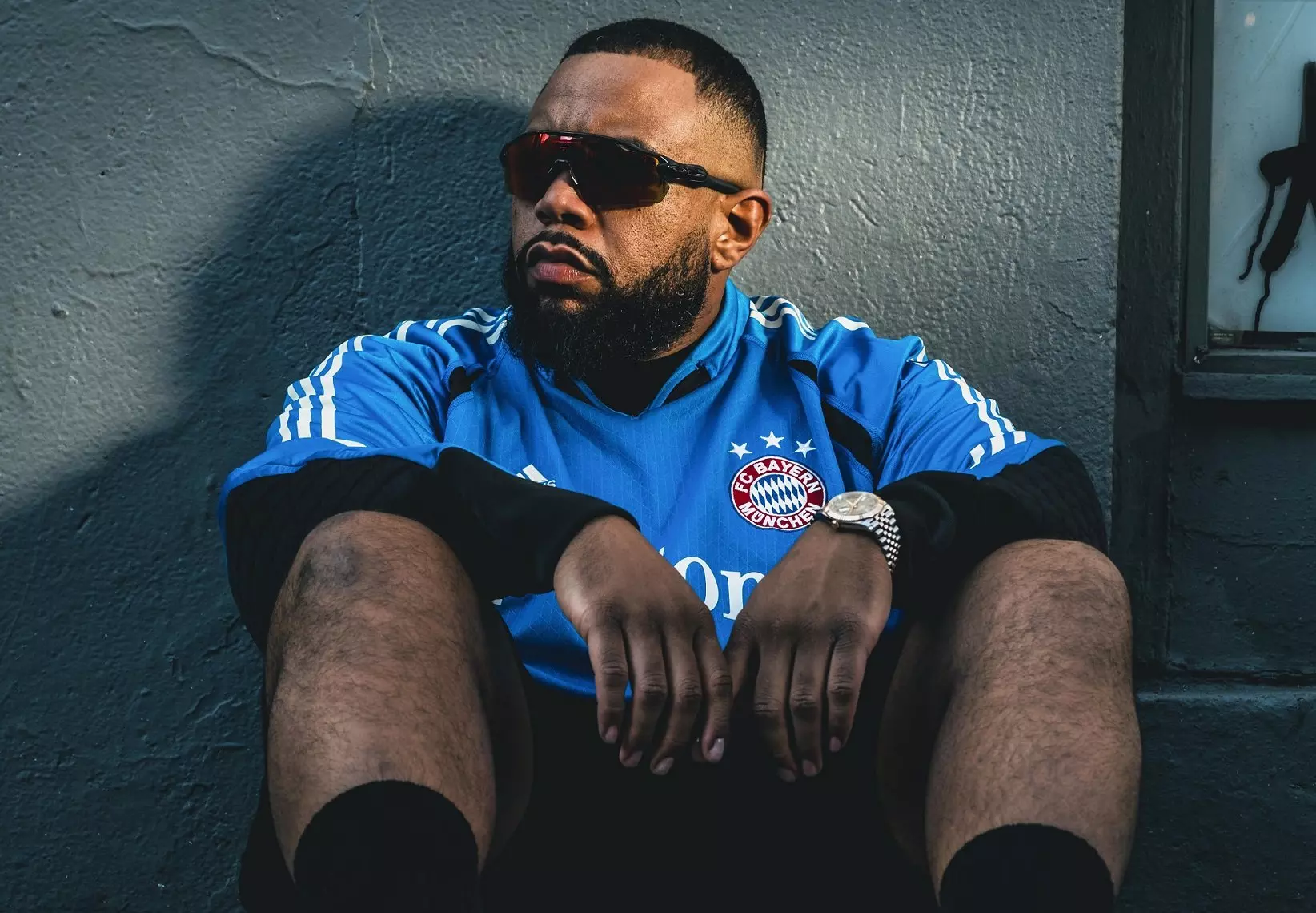
Diamante Blackmon On His Debut Album As GORDO, Leaning Into Afro House & Celebrating His Latin American Roots
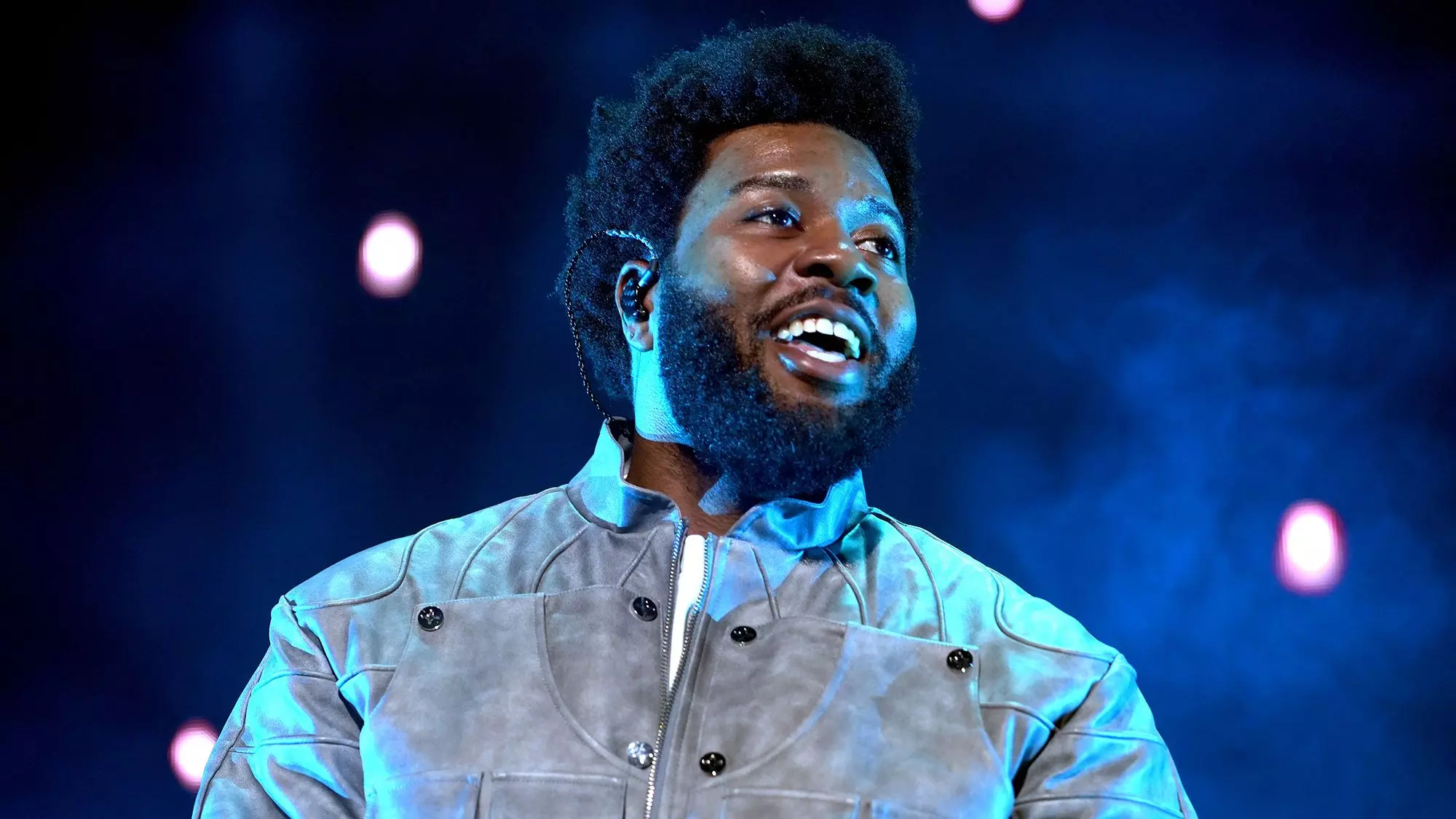
Khalid On His Songwriting Process & The Importance Of GRAMMY Voting
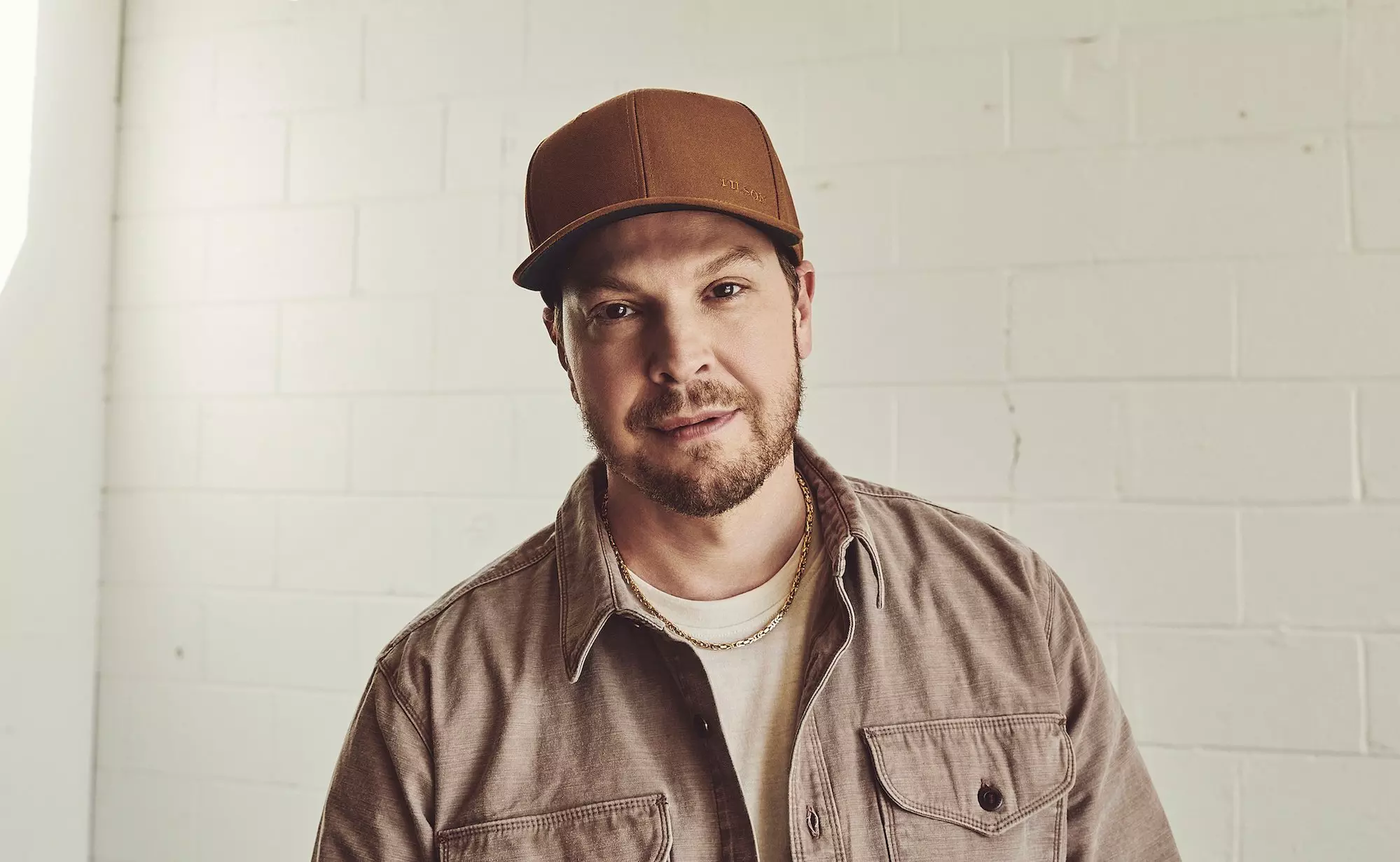
Gavin DeGraw Still Can't Believe How 'Chariot' Changed His Life

15 Must-Hear Albums In October: Halsey, Samara Joy, Pixies & More
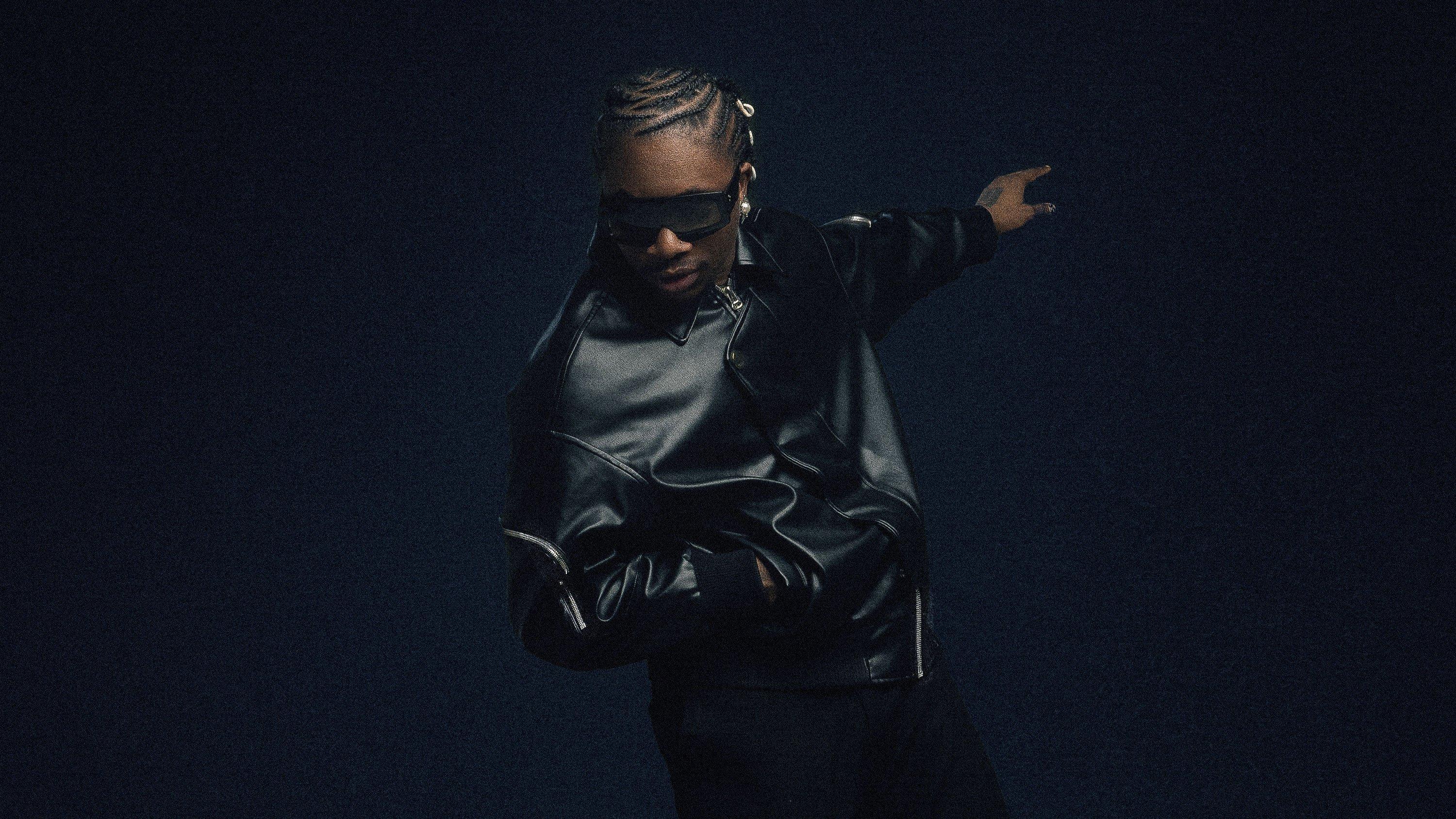
Photo: Courtesy of the artist
interview
Rising Afrobeats Star Oxlade Is Ready To Go Global On 'Oxlade From Africa'
The Nigerian singer discusses his new project, his global ambitions, and the unity of Afrobeats as an identity.
If there’s one thing Nigerian singer Oxlade believes in, it’s the power of Afrobeats as a world-conquering musical movement.
“Afrobeat is beyond the music. Afrobeats is who we are,” he says. “Afrobeats is the trends, the fashion, what we eat. Afrobeats is an identity.”
The Lagos native, born Ikuforiji Olaitan Abdulrahman, has good reason to believe in Afrobeats, considering he’s one of its fastest-rising stars. After a youth marked by tragedy and struggle, in particular the death of his mother at 3 years old, he left university to pursue a musical career in the late 2010s.
Oxlade quickly rose to prominence when his strong falsetto vocals earned him cosigns from Drake and opening performance slots for Davido and WizKid. His EP Oxygene, inspired by his own struggles with asthma, gained acclaim with the smash hit “Away” in 2020. An even bigger success followed with “Ku Lo Sa” in 2022; his performance of the song on A Colors Show, the influential YouTube series where artists give one-take live renditions of their music, currently has over 100 million views.
Now, Oxlade is readying his biggest act yet. He dropped his debut album Oxlade From Africa on September 20 ahead of a North American tour starting October 2 in Winnipeg. The album’s vision of what Afrobeats can be is quite inclusive, with the artist bringing aboard UK rapper Dave, French-speaking Congolese star Fally Ipupa, and Jamaican dancehall icon Popcaan as collaborators. Ugandan music legend turned political dissident Bobi Wine provides a spirited introduction on the album’s opening track.
GRAMMY.com caught up with Oxlade via Zoom ahead of the album’s release to talk about the creative process behind the record, his global ambitions, and how Afrobeats serves as a cultural force on the world stage.
How long have you been making music and when did you decide to start doing it professionally?
I started singing even before I started to talk. So it's more like a muscle memory thing for me. I was born into a musical family. I lost my mom when I was three, and I moved to my grandma's. My grandma happened to be a deaconess in a church, and she enrolled me in the choir. Ever since then, I've been singing. It has always been a part of me, even though I never knew I was gonna use it to impact lives. Even though I never knew I was gonna be Oxlade, I started singing even before I found myself.
Judging by the Barcelona FC jacket you’re wearing, you're clearly a football fan. Do you support any specific teams or players?
I'm a Barca fan. My favorite football player of all time is Neymar. He made me love football again. His game is artistic, not the normal athletic, direct style.
Before I knew the origin of your artist name, I originally thought that you had named yourself after (former Liverpool player) Alexander Oxlade Chamberlain.
Yeah, I get that a lot. Actually, I got it from my grandpa. He lost his best friend the same day I was born, and so he gave me the name in his honor.
**The album is called Oxlade from Africa. Why is it from Africa, not from Nigeria or from Lagos?**
As much of a Nigerian that I am, I'm equally an African. And Africa is the mother continent of every African country and race, including the likes of Jamaica and most of the Black people you see anywhere on Earth. So I felt like self awareness and identity is one of the most underrated strengths that any African has. I'm on the path of finding myself, but also I'm on the quest of telling people more about myself and where I come from through my music.
Something I encounter a lot when speaking with Afrobeats artists is the idea of Pan Africanism, this desire to sort of unite the whole continent through sound. And it seems like you want to unite sort of everyone of any Black experience.
I feel like we need more unity in Africa. God really blessed our race. And I feel the only missing piece is more love. If we let go of xenophobia, tribalism and personal greed, I feel like Africa could be the most blessed, flourishing continent to ever exist.
Is that why you wanted to work with someone like Bobi Wine, who has become a political leader in his country?
Yeah. I mean, it was just a way to remind the African youth that even though we are artists, we're vessels, and we are also destined to use our platforms and our voices to wake people up. The future is now, the future is tomorrow, the future has to start from now, and having Bobi Wine on there was just like a trigger to remind people of what the struggle of being an African youth feels like, and against all odds, how much we have to triumph. Because when our parents, or when the people that came before us are gone, we're going to be the ones that have to handle the fate of Africa.
Was there a particular moment earlier on in your career where you realized you wanted to become a musician full time? What was that moment like?
I just knew I was never going to work a nine to five (laughs). Like, in as much as I could work for someone, I want to work on my own terms. I want to work while creating my own future, my own art. I didn't know I was going to be this big or go this deep into music, but I knew I was going to be a star. I started off as a dancer, and then I started acting, and then music just came along. Music had always been there, but I really didn't know what exact talent I was going to use to actually push my stardom. But I feel like music eventually won, because I think that's the most natural thing that comes to me.
Is there a co-sign from another artist, or anyone really, that excited you more than anything other? Who's the most important supporter?
Every single human being that streams my music is my biggest co-sign. I would say Drake, but I mean, a woman somewhere in Congo taking out her hard earned money to stream my music is my biggest supporter, or the woman somewhere in the South of France using my songs to serenade her husband for their wedding anniversary. I feel like every single person that ever invested in my music should be regarded as my biggest co-sign ever.
What’s the biggest career milestone of yours so far? What is something that you are really proud to have accomplished
My biggest career milestone is the fact that I never stopped, that I'm still here, that I'm still trying to achieve my goals, regardless of all the obstacles, regardless of where I come from. Trust me, being a Nigerian alone is an obstacle, because we’re making it against all odds. We're doing this in hardship, in poverty, and we're still excelling. So being able to achieve my dream alone is my biggest milestone.
Were there any particular obstacles in the making of this album that you had to surpass?
Obstacles have to happen for you to value every success that you achieve, so from the paperwork down to me having to go re-record the entire album in London, down to selection problems, down to me having to let go of some personal, sentimental songs that didn’t fit the theme of the album, down to having sleepless nights, always having to push the album date, thousands of Zoom meetings – it's a long list. That's why I'm so grateful that this album exists.
What would you say the theme of the album is overall?
Royalty, African excellence, and Black is the new cool. Being Black is a flex. Afrobeat is beyond the music. Afrobeats is who we are. Afrobeats is a Twitter banter. Afrobeats is the trends, the fashion, what we eat. Afrobeats is an identity. So I understand when people try to carve a niche for themselves, but what I don't like is when it’s at the expense of Afrobeats, discrediting what we're fighting for, which is an identity. You wouldn't see Kendrick Lamar, no matter how many triple or quadruple entendres he might put on a record, try to downplay hip hop, because that's the identity they're trying to represent. So I feel like this album is just an embodiment of all of that, authenticity, originality.
**In terms of what you put into the lyrical content or the sound of the album, how do you think that identity manifests on Oxlade from Africa?**
I sang about my struggle. I sang about love, I sang about gratitude. I sang about prophesying greatness into one's life. Everything I am in real life was transferred into melodies, and that is why I feel like that is authentic enough to be labeled Oxlade from Africa and an African album, because I'm African, and I'm literally singing my experiences into music.
And those personal songs that you had to leave off, why exactly weren’t they right for this project? And are you going to try and put them out at some point?
Definitely, they're gonna fit into the project they were made for. Some of them were probably extremely pop records, and they defied the theme and sound that I was trying to create for this album. Some of them could be techno music. Some of them could be different types of genres that didn't fit the theme of the album, not because the songs were not good enough. So definitely, those songs are gonna find an album that benefits them.
Who would you love to collaborate with the most?
Dead or alive? Michael Jackson is a no brainer, because I feel like he's the greatest to ever do it. He made Black boys mainstream. I don't know if you understand what that means, like he’s the first Black pop artist to be televised on MTV. You know, all those types of milestones made boys like us, at home in Africa, believe that anything is possible. Another person I would like to work with is probably Drake. Him, Kendrick, Lauryn Hill, and the list goes on and on. There's Chronixx from Jamaica. I just love spiritual, ethereal musicians
What's one thing that people might not know about you?
I'm asthmatic. People don't know that. That's why I dropped my first ever project, an EP called Oxygene. People didn't realize it was me raising awareness for asthma patients around the world, to tell them they’re not alone and that music would be the air you need to heal you from asthma. I'm also a cat guy, I have two cats.
Does your asthma ever give you difficulties when performing?
Oddly enough it never has. I feel like the pressure and the intensity that comes with climbing the stage turns all sickness into hype. Like you're about to get onstage, nothing is messing you.
More News About African Music

Mic Monsta Performs "Local Lokito" | Global Spin
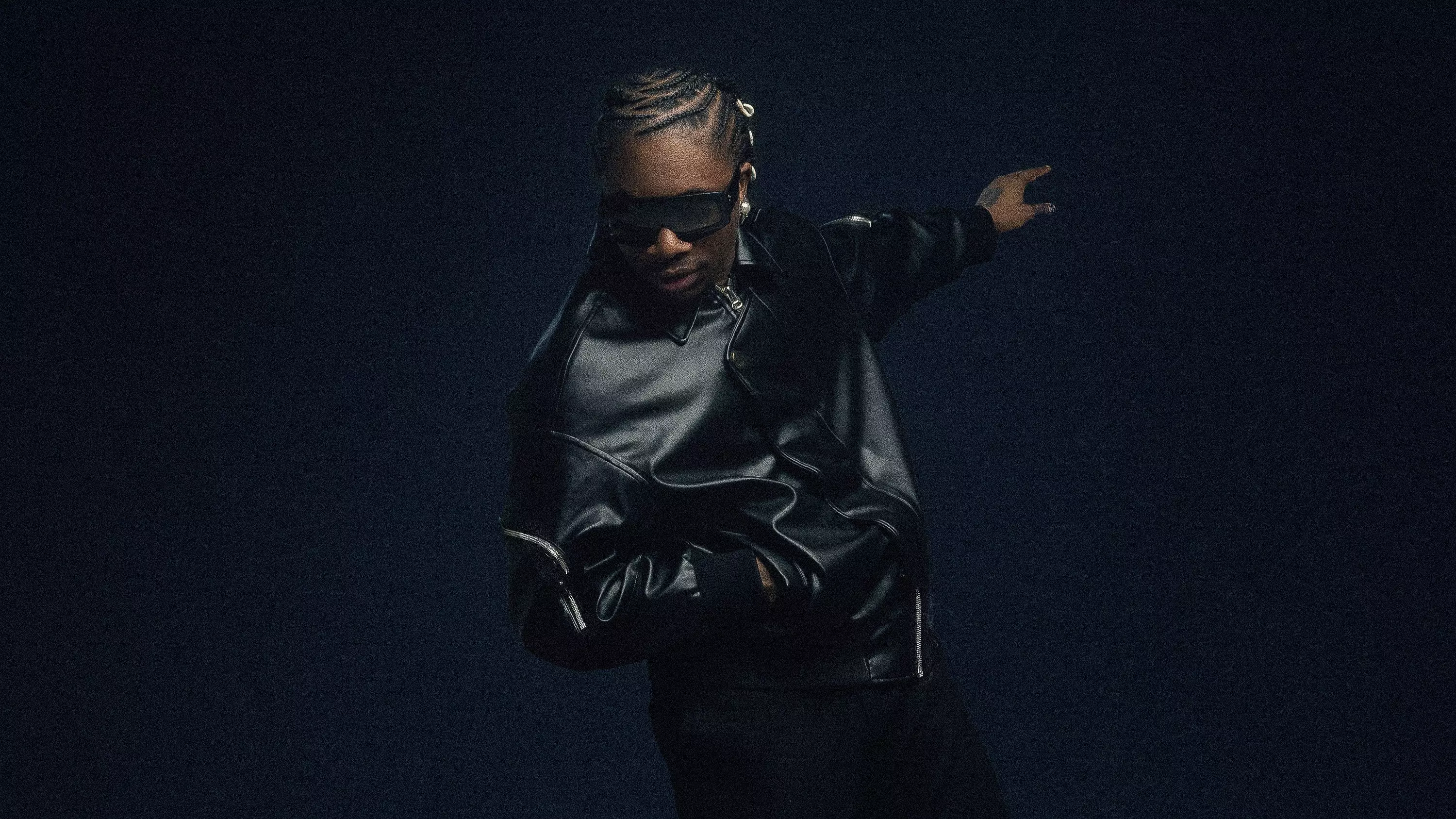
Rising Afrobeats Star Oxlade Is Ready To Go Global On 'Oxlade From Africa'
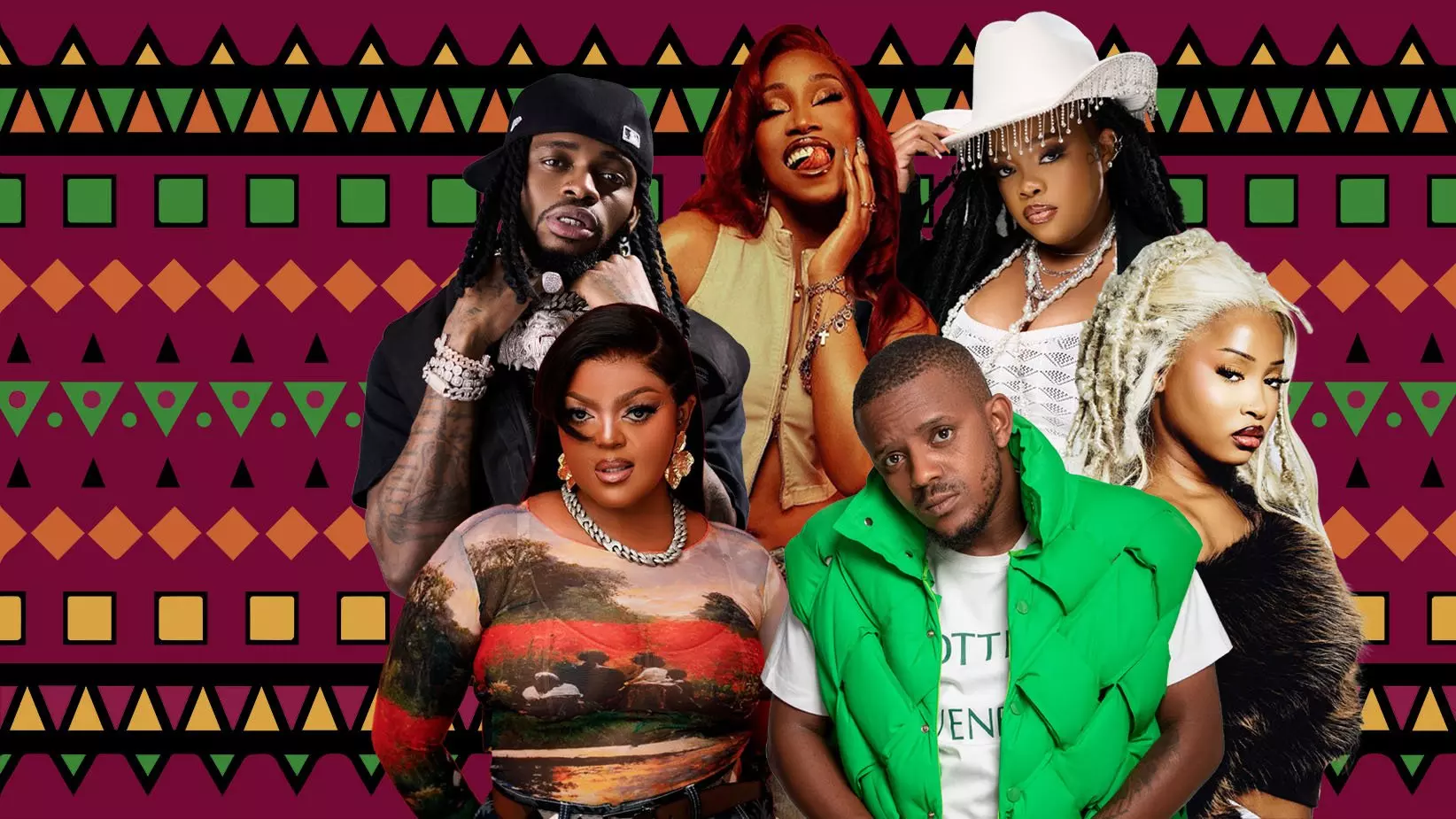
Amapiano's Decade-Long Journey To Global Dominance: The Sound Redefining Club Music Worldwide
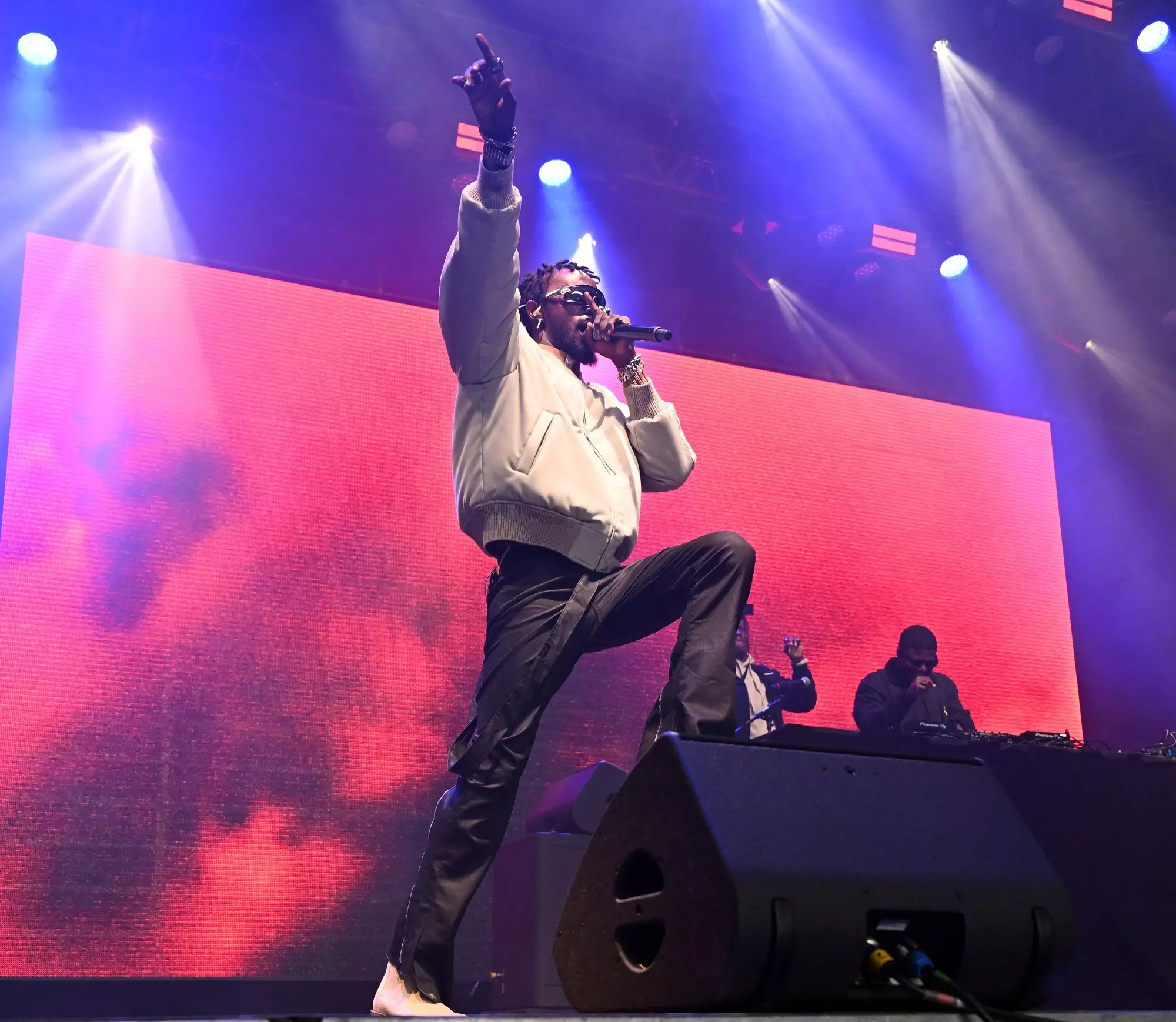
10 Artists Essential To Ghanaian Hiplife: Reggie Rockstone, Sarkodie, Mzbel & More
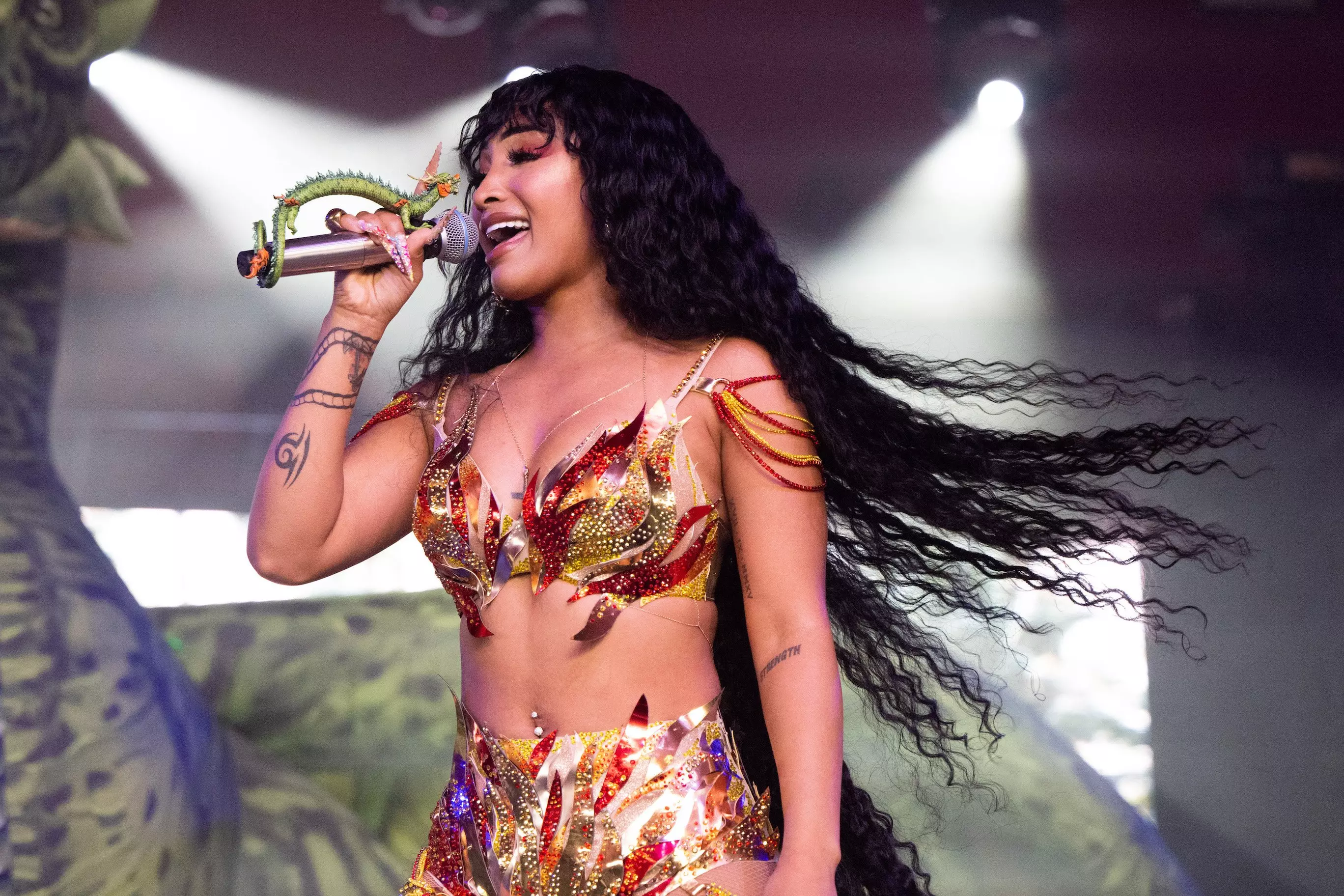
8 Can't-Miss Acts At Afro Nation Detroit 2024: Shenseea, Ayra Starr, Kizz Daniel & More
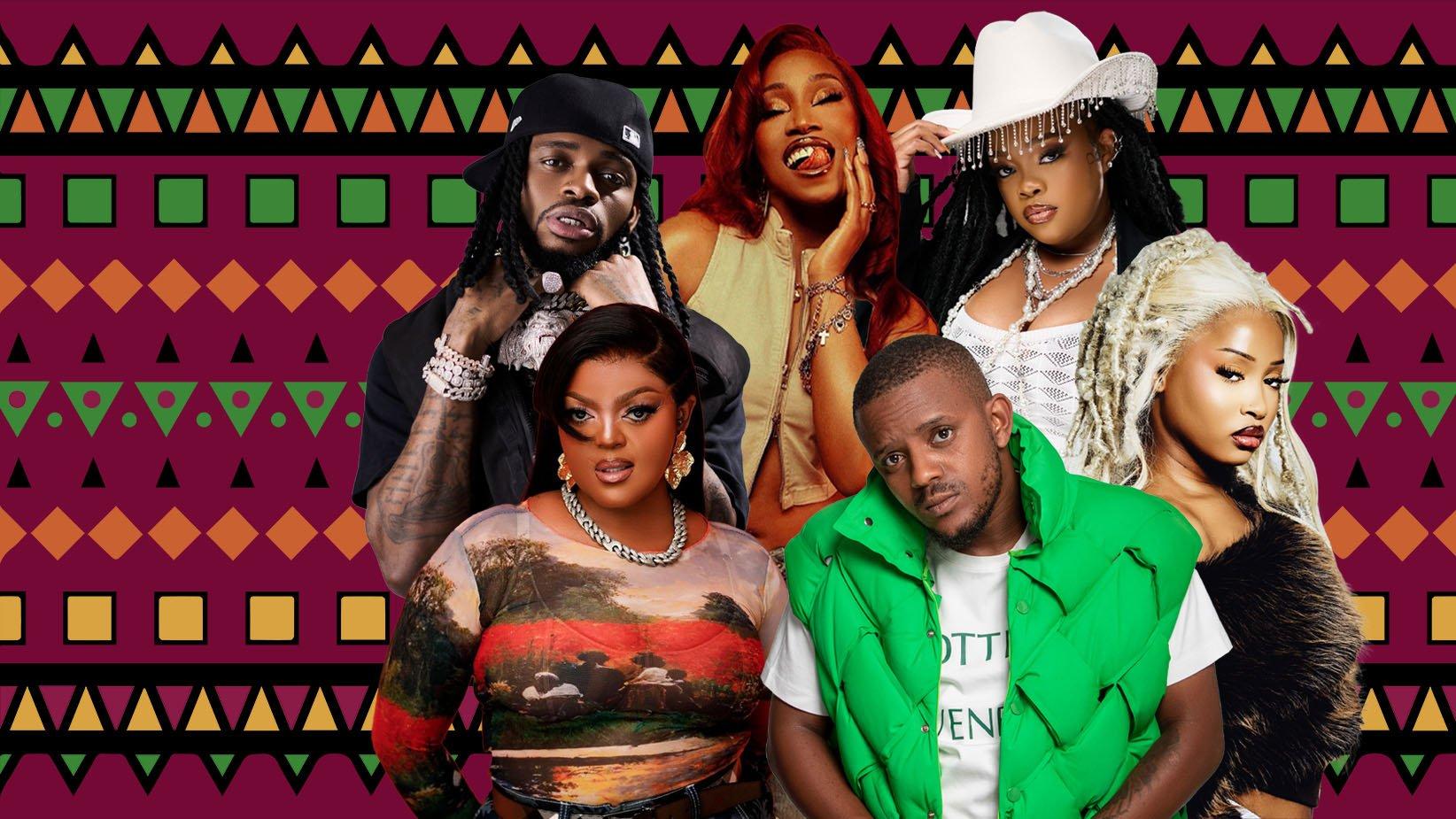
Photos: Blaq; Jibril Jallow; Malwandla Rikhotso; Mishaal Gangaram; Malwandla Rikhotso; Minenhle Nene
feature
Amapiano's Decade-Long Journey To Global Dominance: The Sound Redefining Club Music Worldwide
Amapiano may have started in the townships of South Africa, but it didn’t stay there. Amapiano artists Kabza De Small, Uncle Waffles, DBN Gogo, and others detail how the genre went from the underground to the GRAMMY stage and beyond.
At nightclubs in Tokyo, New York and beyond, pulsing through the speakers at major European music festivals, and even in Hollywood blockbusters, one sound has been steadily taking over: amapiano.
The South African genre, with a blend of deep house, jazz, lounge and local musical styles, has captivated the world, generating billions of views on social media and sparking a cultural phenomenon that shows no signs of slowing down. On TikTok alone, the #Amapiano hashtag has amassed over 10 billion views, a testament to its global reach and popularity.
Characterized by velvety, hypnotic grooves, piano melodies, deep basslines, and smooth percussive rhythms, amapiano was born in the townships of Gauteng Province — particularly in cities like Pretoria and Johannesburg — in the mid-2010s. Slower than the average club track, amapiano songs often live between 110 and 120 bpm. The genre's rise to global dominance is a testament to the power of grassroots creativity and digital connectivity.
Fast-forward to February 2024, and South African singer Tyla took home the inaugural golden gramophone for Best African Music Performance at the 2024 GRAMMYs. Beyond Music's Biggest Night, Tyla's amapiano-infused Afropop hit "Water" topped the Billboard U.S. Afrobeats Songs and Hip-Hop/R&B charts, and became the first African song to enter the Billboard Hot 100 since 1968. The "Water" dance challenge on TikTok — created by Tyla’s choreographer, Litchi — also widely pushed the song.
Tyla isn't alone in pushing the genre's popularity. Interest in amapiano has been propelled by social media and streaming platforms. According to Spotify data, the genre garnered its first 100 million streams in 2020; by mid-2024 the platform reported 855 million streams of amapiano songs. Between 2014 and 2024, there has been a 153 percent growth in international exposure to the genre.
While Tyla’s win at the GRAMMYs and in wider culture affirms the genre’s solid footing in the global music scene, amapiano’s popularity is the result of a decade-long journey.
The Birth Of A Movement
While the birth of amapiano is generally pegged to 2014, there’s no specific event or single person that can be credited with its uprising. Amapiano's origins were humble but innovative, distinguished by its inclusivity and collaboration — factors that are likely the result of the fluidity with which the genre emerged.
Young, aspiring producers in South African townships used affordable personal computers and free music production software to blend globally-influenced sounds such as deep house and jazz with kwaito — a distinctly South African genre. True to the collaborative nature of the genre's origins, an amapiano song can have six to 10 collaborators (sometimes more); the result is a blend of carefully curated voices, notes, and themes that captivates listeners far beyond its birthplace.
Kabza De Small began his career in 2009 and broke through on the continent with his 2016 album Avenue Sounds. Today, he's hailed as the "King of Amapiano" by media, fans and industry peers. "Amapiano is considered a raw, rough sound. To see people globally dancing and participating in TikTok challenges is thrilling," he tells GRAMMY.com, reflecting on amapiano's unique sound and present-day virality.
This rawness is largely reflected in the genre’s production, which often strips down tracks to their bare essentials. Repetitive beats and bass often contribute to amapiano's "rough" aspect, making it feel more direct and visceral. Soulful melodies float over that heavy bass and percussion, and catchy vocal hooks balance the raw beats underneath.
Amapiano’s collaborative nature has been crucial to its development. Kabza De Small shouts out pioneering producer, singer and songwriter, Mdu aka TRP. "Not a lot of people know that he basically founded the log drum sound that is so essential and distinct" to amapiano, De Small says. In amapiano, the "log drum" isn't an actual instrument but a distinct, synthesized bass sound that captures the deep, resonant tones of a traditional log drum. This signature sound has become a cornerstone of amapiano's unique and captivating vibe.
From Local Phenomenon To National Breakthrough
Cultural authenticity has been a key factor in the sound's appeal. It's not just a genre of music, but a representation of South African identity and expression. The name itself came from the Zulu language, which is the word for "pianos."
By 2016, amapiano was still finding its ground, with local DJs and producers refining its signature elements.
Learn more: 11 Women Pushing Amapiano To Global Heights: Uncle Waffles, Nkosazana Daughter, & More
A significant milestone was achieved in 2017 when De Mogul SA's "Oe Batla Kae" became one of the first amapiano tracks to achieve commercial success. The tune got the artist booked for local shows, effectively paving the way for other amapiano songs. In 2018, "Umshove" by Kabza De Small feat. Leehleza showcased a more refined amapiano sound, highlighting elements that "Oe Batla Kae" lacked — particularly the log drum.
2019 was a defining year for amapiano, as songs like "Labantwana Ama Uber" by Semi Tee (feat. Kammu Dee and Miano), "Vula Vala" by DJ Maphorisa and Kabza De Small (feat. Nokwazi and Vigro Deep), and "Kokota Piano" by Kaygee Daking and Bizizi further left the underground. Amapiano could be heard on television and radio, in clubs, and across social media, effectively making the above songs anthems throughout South Africa.
As the sound began to spread nationally, it carried with it the stories, language, and rhythms of its birthplace, creating a strong connection with listeners across the country.
The Global Takeover
As the world grappled with COVID-related lockdowns in 2020 and 2021, danceable amapiano songs such as DBN Gogo and Musa Keys' "Possible," Focalistic's "Ke Star" feat. Vigro Deep, and "Emcimbini" by Kabza De Small and others provided a much-needed escape. With more time spent online during the pandemic, the genre was simultaneously making its way into social media globally, with a variety of TikTok dance challenges bringing additional listeners to the genre.
International collaborations further catapulted amapiano onto the world stage. In 2022, Nigerian crooner CKay collaborated with Davido and Focalistic on "Watawi", a notably huge Afropiano song. On YouTube, the songs performed quite well, with "Woza" by South African artists Mr JazziQ, Kabza De Small and Lady Du featuring Boohle hitting 21 million views. "Mang’Dakiwe" by DJ Obza featuring Leon Lee hit 17 million views. The remix, done in collaboration with Tanzanian bongo artist Harmonize garnered 29 million views.
By 2023, the amapiano sound was now mature and definitive, with all of its key elements together. Over the next few years, amapiano sounds would be incorporated with genres from other countries to great effect.
Zimbabwean amapiano vocalist Sha Sha's "Tender Love" feat. DJ Maphorisa and Kabza De Small garnered more than 15 million views on YouTube. The popular release showcased her impeccable vocal range and denoted that amapiano was now being done by artists beyond South Africa. For her efforts, Sha Sha took home the Viewer’s Choice Best New International Act award at the 2020 BET Awards. Her win on an international platform signaled amapiano's arrival on the global music scene and opened doors for more artists to gain international exposure.
Simultaneously, awards for and documentation of amapiano within South Africa pushed the movement even further. In 2021, the South Africa Amapiano Music Awards were launched and exclusively dedicated to the genre. The inaugural Best Amapiano Album Of The Year Award was given to De Mthuda for Ace of Spades.
Uncle Waffles, whose electrifying DJ sets have made her a symbol of the genre's youthful exuberance, marvels at this global embrace. "It's amazing to see the world embrace a new sound," she tells GRAMMY.com. "Seeing people dancing and singing to the songs never fails to stun me."
Amapiano artists including Uncle Waffles, DBN Gogo, and Major League Djz have performed on a variety of global stages, from AfroNation's Portugal and Miami events to Coachella and London's O2 Arena. Tyla has performed at the BET Awards, the 2024 Olympics and the Cannes Lions Festival 2024.
Encouraging Cross-Cultural Collaborations
Amapiano has become a cultural ambassador, allowing artists in the diaspora to connect with their roots while introducing the sound to new audiences.
Amapiano singer Nqobilé Danseur, who grew up in South Africa before moving to the UK at age 12, tells GRAMMY.com that "amapiano is deeply personal to me as it embodies my South African heritage and journey. Growing up in South Africa, kwaito was the soundtrack to our lives."
The genre's authentic DNA has allowed artists to explore new territories, both geographically and creatively. Nqobilé recounted her 2022 single "Shake" featuring Xavier being played during a carnival party in New York, and how the crowd's engagement reflected amapiano's ability to transcend cultural and physical boundaries.
Singer/songwriter Boohle, who transitioned from gospel and Afropop to amapiano, has toured Dubai, Amsterdam, and many African countries. "Seeing cultures and backgrounds unite over the music we make is something else. I would call it God's plan," she tells GRAMMY.com.
This international appeal has seen the rise of crossover subgenres such as Afropiano (Nigeria), bongopiano (Tanzania), Gqom 2.0 (South Africa), and bique (Mozambique). Afropiano tracks have garnered hundreds of millions of views on YouTube as of 2024. Among the largest hits are Kizz Daniel and Tekno's "Buga," Spyro's "Who is Your Guy" remix feat. Tiwa Savage, and "Unavailable" by Davido feat. Musa Keys.
Diamond Platnumz, a Tanzanian bongo artist, is a prolific contributor to the amapiano genre. "Tanzania has a very close relationship with South Africa from years back established with our forefathers," he says, adding that he also has family in South Africa. "I spend a lot of time there between business and family obligations. It was a natural thing for me as a creative to infuse what I was hearing on the ground in SA with what we are accustomed to in Tanzania."
Platnumz's amapiano catalog is impressive, with songs such as "Iyo", "Shu!", and "Nitongoze." He has collaborated with the genre’s heavyweights including rapper Focalistic, choir Mapara A Jazz, and the late Costa Tich. His 2024 amapiano single "Komasava" remix is an international collaboration that featured Khalil Harrison, Chley, and Jason Derulo.
The track, rich in amapiano beats, layered with modern pop elements, and Zulu, Xhosa, French and Swahili lyrics, exemplifies how the genre has become a bridge between artists from different parts of the world.
Cultural Impact Beyond Music
As amapiano spread globally, it began to influence fashion, dance, and broader culture.
The genre's success has also opened doors for African artists to venture into arenas outside of performing music. Kabza De Small created PianoHub, a record label which houses South African amapiano artists including Young Stunna, Mdu aka TRP, Nkulee & Skroef28, Deeper Phil, Masterpiece TVK, and Stakev. De Small added that he plans to open a venue called Piano Hub Soweto — another example of how amapiano has created economic opportunities and fostered community development.
DBN Gogo echoes this sentiment, adding that amapiano has broadened the horizons for many in the industry. "Outside of music, I think my team and I have been grateful for the opportunity to travel and see the world," she says. "Whenever we do have the opportunity we take time in different countries to immerse ourselves in the dance culture there. Amapiano has done so much in giving us and many others the chance to represent South Africa and the genre worldwide."
The success of amapiano has boosted Nqobilé Danseur's confidence, affirming her authenticity and driving her to release music consistently. Diamond Platnumz adds that he has become more aware through his involvement with amapiano, making his life's purpose even more meaningful. This July, DBN Gogo became the first amapiano DJ to perform at Belgium's Tomorrowland festival.
Even Beyoncé has taken notice: Uncle Waffles' debut single "Tanzania" was featured during a dance break on the European leg of the Renaissance World Tour.
Looking To The Future
As amapiano enters its second decade, its influence shows no signs of waning. The genre continues to evolve, with artists experimenting with new sounds and collaborations that push its boundaries.
Going forward, listeners can expect to see amapiano artists continuing to team up with global stars, experimenting with sounds that cross genre boundaries, from Afrobeats to electronic dance.
In October 2023, DBN Gogo collaborated with veteran Italian EDM DJ and producer Benny Benassi on a track titled "SAdesFakSHen." In June 2024, Chris Brown released "Hmmm," an Afropiano song featuring Davido. The song, which is part of his 11:11 album now has over 14 million views on YouTube by the time of this publication. Previously, Chris Brown appeared on the "Monalisa" remix, an Afropiano hit by Nigerian singer Lojay and producer Sarz.
"Tshwala Bam" by TitoM and Yuppe is another 2024 amapiano hit that saw Burna Boy jump on a remix. The song spawned a massive TikTok challenge, which got Tyla dancing with famed streamer Kai Cenat, while Khabi Lame joined in on the challenge, and Jason Derulo collaborated with popular twins Laurent and Larry Bourgeois on the dance.
Despite its success, amapiano faces challenges as it continues to grow. Maintaining its cultural authenticity while appealing to a global audience is a delicate balance. There's also the question of how to ensure that the pioneers and grassroots creators of the genre continue to benefit from its global success.
Boohle envisions a bright future for the genre. "Seeing the world jamming to amapiano is a dream come true for me as a young musician in South Africa," she says. "Remember, we come from a background of apartheid and oppression. Seeing cultures and backgrounds unite over the music we make is something else."
The story of amapiano is still being written, with each new release, collaboration, and dance challenge adding a new chapter to this remarkable musical journey. As it continues to evolve and inspire, one thing is certain: The amapiano revolution is far from over – it's just getting started.
Latest News & Exclusive Videos

Slava Vakarchuk Shows Off His Favorite Guitar

Diamante Blackmon On His Debut Album As GORDO, Leaning Into Afro House & Celebrating His Latin American Roots

Khalid On His Songwriting Process & The Importance Of GRAMMY Voting

Gavin DeGraw Still Can't Believe How 'Chariot' Changed His Life

15 Must-Hear Albums In October: Halsey, Samara Joy, Pixies & More
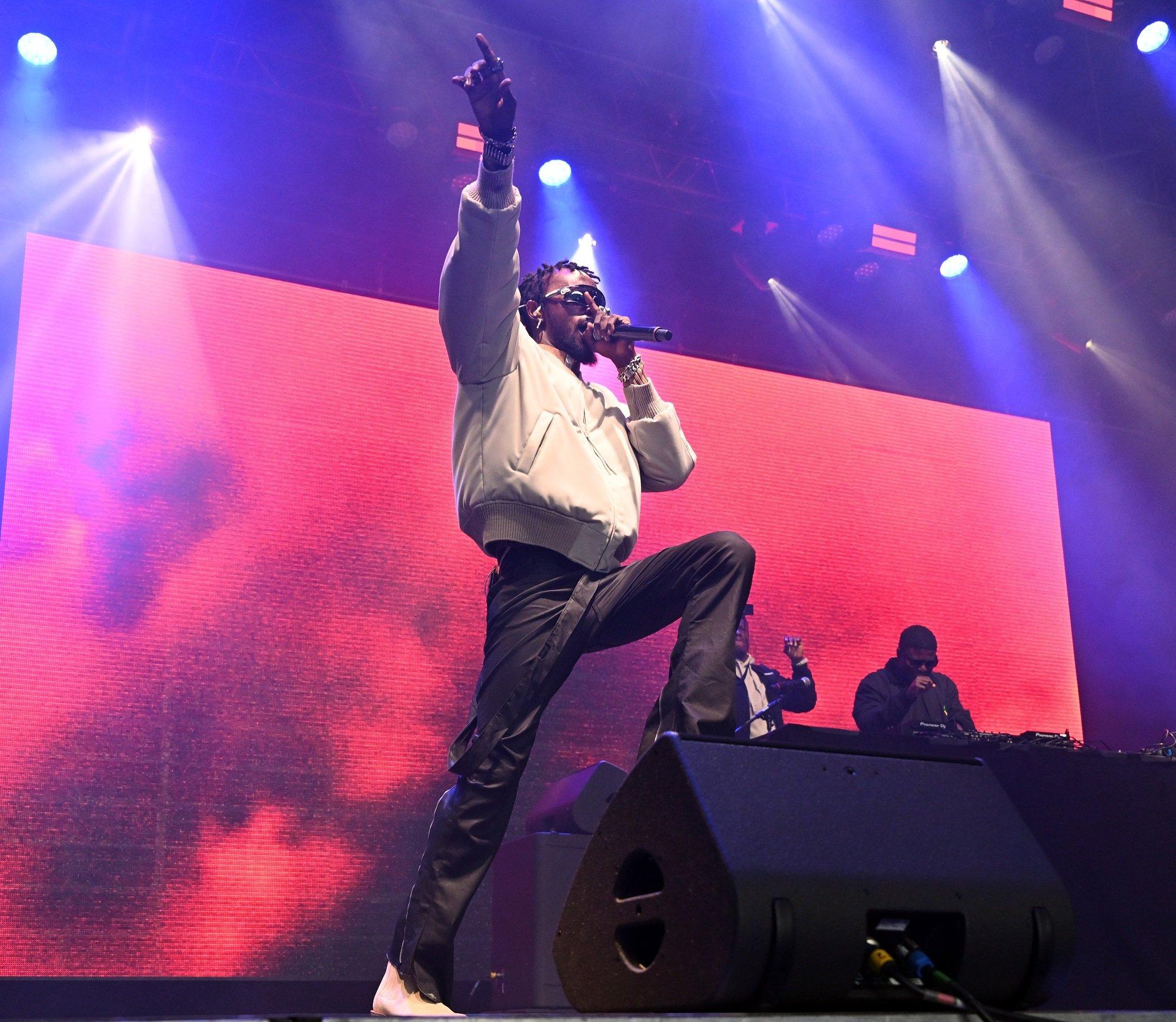
Photo: Rune Hellestad - Corbis/Corbis via Getty Images
list
10 Artists Essential To Ghanaian Hiplife: Reggie Rockstone, Sarkodie, Mzbel & More
In the 1990s, artists and producers from Accra merged the sound and aesthetic of American hip-hop with their Ghanaian sounds and culture. The resulting genre, hiplife, significantly influenced the music coming from Ghana and the African continent.
Ghana has been home to some of the most recognizable musical exports from the African continent, contributing heavily to the globalization and development of the continent's sound. While highlife is regarded as the country’s biggest sonic export, the introduction of hiplife some 30 years ago invigorated the Ghanaian music scene and birthed some of the country's most important artists.
Hiplife music blends hip-hop from the West with Ghanaian highlife sounds like Jama and Kpanlogo — a sound and dance by the Ga people, who make use of nono (metal bell), fao (gourd rattle), and local drums to play beats. These elements were fused with funk, bass, and boom-bap to create hiplife. Hiplife and hip-hop have aural similarities and both use rapping; both genres also reflect a larger culture.
While Gyedu-Blay Ambolley is considered one of the earliest rappers, as demonstrated on his 1973 song "Simigwa-Do," the term "hiplife" was only coined in the late 1990s by genre pioneer Reggie Rockstone. Still, American hip-hop had arrived in the Ghanaian capital of Accra by the early '90s and local rappers began to release their own music soon after. Duo Talking Drum were among this early cohort, and their single "Aden" was an underground hit in 1993.
As a movement and culture, hiplife is also an identity, created to encourage people to be daring in their exploration of sound. Pioneering hiplife artists like Root Eye Samini and Shatta Wale (then known as Bandana) fused dancehall and highlife in the early 2000s to make music which could connect with local audiences.
Collaborations between artists and producers have been crucial in defining the sound, evolution, and amplification of hiplife. Just as hip-hop has developed a plethora of subgenres, hiplife has birthed other sounds such as azonto and asakaa. An offshoot of asakaa, Ghanaian drill, was among the elements in the new Best African Music Performance Category at the 2024 GRAMMYs.
The story of hiplife includes many important producers, artists and labels, including Kassa Records, DJ Rab, Zapp Mallet, Akyeame, Panji Anoff, JayQ, Hammer, Ex Doe, Chicago, and Okomfour Kwadee. Going forward, the mantle will fall on artists like TicTac, Abrewa Nana, Appietus, and much later a younger generation including Asem, Richie Mensah, and Beeztrap KOTM continue to amplify hiplife. Afrobeats artists have also taken notice; Tic Tac and Tony Tetuila’s "Fefe Ne Fe" was sampled on the 2019 song "Gbese" by DJ Tunez feat. Wizkid and Blaqjerzee.
With African music continuing to gain global recognition, the rich sounds emanating from the African continent are ripe for exploration. Read on for 10 artists who have been essential to the story of hiplife music.
Reggie Rockstone
Reggie Rockstone is regarded by many Ghanaians as the godfather of hiplife, having paved the path for many to pursue rapping as a career. Working with producers like the late Rab Bakari (DJ Rab Bakari), Reggie set the ball rolling for hiplife through songs like "Tsooboi."
His 1997 album Makaa Maka offered an early template for the sound, fusing Western-influenced hip-hop with traditional Ghanaian highlife sounds. The linguistically adept Reggie Rockstone — a Ghanaian boy who was raised in the UK and New York — rapped in both English and impeccable Ghanaian Twi to the shock and admiration of many. By this singular act, he proved that it was cool to rap in your own dialect and not necessarily in English, like American rappers of the '90s.
Reggie's will to make Ghanaian rap music stand out via releases like Me Na Me Kae, and Me Ka did not go unrewarded. He also scored hits with his singles "Keep Your Eyes on the Road," "Plan Ben," and "AH." He has also collaborated withdancehall giant Beenie Man and Nigerian legend 2Face.
Lord Kenya
Lord Kenya rose to fame when he joined Slip Music, one of Ghana’s celebrated music labels of the late '90s and mid-2000s. His musicality was undeniable, and his hardcore rap style was adored by many for its energetic flow and delivery. Likened to Tupac Shakur, Kenya was very direct whenever he was on the mic. He never shied away from any lyrical battle thus earning him the title "rap heavyweight." His swagger on and off the mic made him a star, with many eager to catch him anytime he performed.
Lord Kenya's street affinity, coupled with great stage performances, left a mark on Ghanaian audiences. His albums — including 1998's Sika Card, Yesom Sika, and Sika Baa — solidified his position as one of hiplife’s most important artists. Kenya's hit singles "Enyomo," "Medo" and "Sika Mpo Mfa Neho" as well as his verse on the late Daseebre Dwamena’s song, "Kookoo" ushered in a street approach to the rap scene, as seen in the careers of rappers like Kwaw Kese and Kweku Smoke in later years.
Obrafour
Revered, celebrated, and crowned by music rap purists in Ghana as "Rap Sofo" (high priest of rap), Obrafour influenced multiple generations of rappers in Ghana. The artist first gained popularity in the late '90s with his cadence and mastery over his mother tongue, Twi, as well as his storytelling, lyricism, and wisdom.
Obrafour’s flow complemented the work of legendary producer Hammer, who brought hard-hitting drums, horns, and legendary sharp chords to Obrafour’s 1999 album Pae Mu Ka. The album is regarded as the bridge that connected older audiences who dismissed hiplife as a passing fad and the youth, who regarded hiplife as the future of Ghanaian music. Today, Pae Mu Ka is as important to hiplife as Nas’ Illmatic is to hip-hop.
Pae Mu Ka was the first of several collaborations between Obrafour and Hammer. Together, they created a sound that would influence generations of rappers. Obrafour is held in high regard by rappers such as M.anifest, Guru, Ko-Jo Cue, and Pappy Kojo.
VIP
Established in Nima, a suburb of Accra, VIP underwent significant personnel changes but never let their commitment to hiplife music falter. Original member Friction later onboarded Promzy, Prodigal, and Lazzy (who later changed his name to Zeal), and Bone championed the vision of the group for over a decade (as well as the departure of Friction, Bone and Promzy).
Backed by the group's diverse personalities, VIP quickly became one of the biggest music exports of the country, winning six awards at the Ghana Music Awards in (2004), including Song Of The Year for the 2003 hit title track "Ahomka Wo Mu." Over a two-decade period, the group released albums and scored several hits and collaborated with some of the continent's finest, including 2Face, Patoranking and a host of others. Vision in Progress (VIP) epitomized the cultural ethos of hiplife: raw energy, passion and talent.
When Reggie Rockstone, a longtime admirer of the group, arrived in 2014, the group became VVIP. The group’s success would be further cemented as they crossed over into Nigeria and other parts of the world. "Ahomka Wo Mu" has been sampled and interpolated by various musicians, including songs by MUT4Y & Wizkid and Kida Kudz.
Tinny
While Twi rapping artists dominated the hiplife music industry, very few artists were successfully making music in other local dialects. Tinny — a rapper who raps in Ga, a language spoken by the people of Accra — rose to the occasion with both rap and fashion. Another product of Hammer’s Last Two record label, Tinny had an unmatched aura that earned him the moniker "Sexy Man Tinny." Early aughts albums such as Makola Kwakwe, Aletse (Akwe Polo), and Kaa Bu Ame still echo in today’s industry. His later works with record producer Richie Mensah on singles like "Ringtone" and "Now I Know" further entrenched his name in Ghana’s hiplife history.
Tinny’s will to pursue rap music in Ga laid the foundation for artists such as Edem, who raps predominantly in Ewe and to a degree music duo Blackstone who performed in Dagbani. Tinny also featured in the BET Hiphop Awards International Cypher (Ghana) alongside Reggie Rockstone, Sarkodie, D Black, Edem, Kwaku-T and Baby G (2010).
Mzbel
In a male-dominated industry, Mzbel created change that still reverberates today through the careers of women like Amaarae, Wendy Shay, Sister Afia and Gyakie. Following in the footsteps of those before her, like Abrewa Nana (a household name in the early 2000s for her role as one of the leading female artists in hiplife), Mzbel's singing and rap skills were not just catchy, but thought-provoking with themes of love, sex, body positivity, and addressing abuse.
Mzbel's non-conformity made her a target by some aspects of the industry. The general public who felt she was a bad influence on younger girls, due to the sensuality in her lyrics and imagery. Yet she was unphased. Mzbel scored national hits with her albums Awosome, and 2005's 16 Years, and touched on issues many regarded as controversial. The rapper stood up for women’s rights and encouraged women to be vocal about things society heavily criticizes women for. She ensured that women were not bullied into silence but instead express themselves fully through art. Her hit single "16 Years" with the late Castro touched on the issue of sexual harassment and abuse young girls face at the hands of older men and, as such, became a national topic.
Sarkodie
Since bursting onto the scene in 2008, Sarkodie has churned out multiple hits year after year with a unique flow and delivery. His records touch on multiple subjects, including friendship, family, love, heartbreak, and bad governance. His hold over rap in Ghana has been extended across the continent, making him one of the most influential rappers in Africa.
In 2012, Sarkodie played a pivotal role in the amplification of azonto music (an offshoot of hiplife that melds dance music genre from the early 2010s with upbeat fast-paced sounds and witty comical lyrics) with his song "U Go Kill Me" with fellow rapper E.L. Winning "Artist Of The Decade at the" Ghana Music Awards (2019), cemented his influence and status.
Rapping predominantly in Twi, Sarkodie’s ability to find pockets on the beat has made him a frequent featured artist by the likes of Mr. Eazi, Ice Prince, Flavour, Victoria Kimani, Patoranking and a host of other important artists in Africa. Sarkodie won Best International Act: Africa (2012) and the inaugural Best International Flow at the BET Hiphop Awards in 2019.
Asakaa Boys
In a time when hiplife had taken a back seat to Afrobeats and amapiano on the Ghanaian market, a group of artists from Kumasi (Kumerica) — a slang used to describe people of Kumasi who enthusiasts of American music and culture — burst onto the scene via asakaa, or Ghanaian drill. Inspired by Pop Smoke’s drill music, the sound reflects their lifestyle on the streets of Kumasi, hiplife elements, and American hip-hop culture such as fashion.
The name asakaa originates from the word saka, a flipped slang of the Twi word kasa, which means to speak. Saka, a style of speaking where words are pronounced backwards, was heard in the songs that were released by the Asakaa Boys. The asakaa sound is credited to the Kumasi-based Life Living Records, and signees Jay Bahd, Kawabanga, O’Kenneth, City Boy, Kwaku DMC, Reggie, Sean Lifer, Braa Benk and Skyface SDW under the moniker The Asakaa Boys.
With songs like "Akatafoc", "Sore," and "Agyeiwaa," and leading the charge, Asakaa (Ghanaian Drill) has gained recognition locally and internationally in the 2020s.
Black Sherif
Black Sherif may be young, but he has already charted a path of success for himself in Ghana’s music industry which many are yet to match. Black Sherif’s sound, writing, fashion, and mannerisms have earned him admiration. He first tasted popularity when his song "Money" went viral in 2019; two years later he regained public attention in 2021 with his First and Second Sermon songs and after a Burna Boy cosign on "Second Sermon Remix," Black Sherif's popularity soared.
The artist has gone on to deliver multiple hit songs such as "Kweku The Traveller," "Soja," and a monstrous guest verse on Odumodu Blvck’s "Wotowoto Seasoning." In 2023 he won Artiste of the Year at the Ghana Music Awards and aBET Awards Best International Award. Additionally, he has performed on global stages atMOBO Awards, Wireless Festival, and 2023's AfroNation.
King Paluta
With a charisma like that of Lord Kenya, King Paluta is an energetic rapper with some "thugness" in his delivery influenced by life on the streets of Kumasi. As a young man, he often slept in the studio, where he learned how to operate the equipment in the studio and dropped his first official single in 2015.
Despite releasing music and being popular in Kumasi, he would only gain national attention in 2023 for "Yahitte," which earned him the award as the Best New Artist at The Ghana Music Awards in 2024. In the 2024 alone, he has scored two charting-topping singles, "Aseda" and "Makoma," making him arguably the hottest artist in Ghana.
As a student of hiplife, King Paluta has fully embodied the genre as evident in his music. He has positioned himself to carry on the legacy of those before him as far as hiplife is concerned, and he is on track thus far.
More News About African Music

Mic Monsta Performs "Local Lokito" | Global Spin

Rising Afrobeats Star Oxlade Is Ready To Go Global On 'Oxlade From Africa'

Amapiano's Decade-Long Journey To Global Dominance: The Sound Redefining Club Music Worldwide

10 Artists Essential To Ghanaian Hiplife: Reggie Rockstone, Sarkodie, Mzbel & More

8 Can't-Miss Acts At Afro Nation Detroit 2024: Shenseea, Ayra Starr, Kizz Daniel & More
